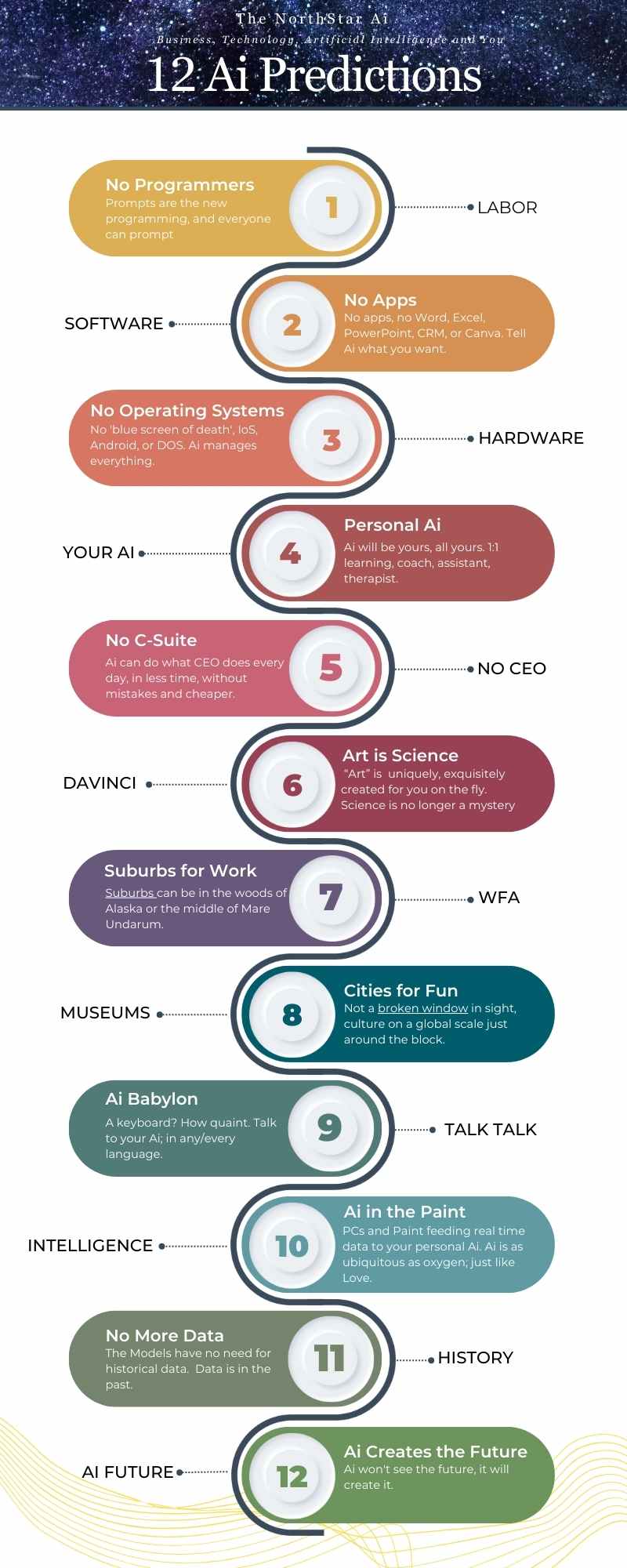|
By Charlie G. Peterson, IV. Forward by Greg Walters.
Greg's Words
The new way of content and art creation is upon us and everybody is in an uproar. Art is a business. But tell me, what is the harm in taking inspiration from a Van Gogh and creating a painting of Irises - on Mars? AI will not destroy Art. AI will accelerate art beyond our current comprehension. AI is a tool, sure. But a tool on the scale of discovering a new color; billions of new colors. While the trivial argue copywrites, regulations, and content-pirates, a few carbon-based life forms, perhaps not yet born, will grasp the reins and ride bareback into the wild. Leaving us breathless, the petty trappings of a sad existence forgotten. Perhaps. In the dimly lit corners of ancient ruins, I've unearthed relics that whispered tales of civilizations long gone. Today, as I navigate the vast digital realm, I hear a similar whisper, but this time, it's the collective voice of modern-day creators echoing through the corridors of the internet. Their plea? Recognition and rightful compensation in an age where artificial intelligence (AI) voraciously consumes content.
The landscape has shifted. Just as I've seen the delicate balance between preserving the past and embracing the future in archaeology, I now witness a tug-of-war between AI giants and the guardians of creative expression. The heart of the matter? The use of copyrighted material to train generative-AI systems without due compensation. This will not end well for creatives,” - James Patterson During a recent digital expedition, I stumbled upon a poignant outcry: thousands of authors, including literary titans like Margaret Atwood and James Patterson, signed an open letter. Their demand was simple yet profound – that top AI companies, such as OpenAI and Google, seek permission and offer payment for the use of their cherished works. It felt eerily reminiscent of an archaeological site where artifacts, once taken without consent, left a void in the tapestry of history.
I couldn't help but draw parallels between the ancient relics I've discovered and the modern content being "unearthed" by AI. Both are treasures, bearing the imprints of their creators. Yet, while one is revered and protected, the other is at risk of being swept up in the AI boom, its value potentially diminished. James Patterson's words resonated deeply with me. The revelation that his vast collection of novels might have been ingested by AI without his permission was, in his words, "frightening." It's a sentiment I share. Just as the relics I've uncovered bear the essence of their creators, so do the works of authors and artists. To use them without acknowledgment feels akin to erasing a piece of history. In the vast digital realm, where AI tools voraciously consume content, the voice of the creator echoes, demanding recognition and rightful compensation. As I delve into this intricate dance of technology and creativity, one thing becomes clear: the future of AI is intertwined with the value we place on human expression." - Charlie G. Peterson, IV. But the AI landscape is complex.
Companies have invested heavily in these technologies, anticipating them to be the powerhouses of future profits. They argue that their data use is permitted, citing the vast oceans of information they've gathered from the internet. Yet, as I've learned from my archaeological pursuits, just because something is buried doesn't mean it's up for grabs. The tensions are palpable. On one side, we have tech behemoths who believe in the transformative potential of AI. They argue that free access to information is vital for technology that learns similarly to humans. Andrew Ng, a prominent figure in the AI sphere, posits, "If a person can freely access and learn from information on the internet, I’d like to see AI systems allowed to do the same." It's a compelling argument, one that speaks to the very essence of innovation. On the other side, we have content creators, the modern-day artisans, who feel their craft is being commodified without due recognition. Their concerns are valid. After all, their creations are more than just data; they are narratives, emotions, and expressions that deserve respect. As I reflect on this intricate dance of technology and creativity, I'm reminded of the interconnectedness of all eras. Every technological stride we make is both a nod to our past and a leap into our future. The generative-AI tools, with their ability to mimic human speech and thought, are marvels of our time. Yet, they stand on the shoulders of countless creators whose works breathe life into them.
The road ahead is uncertain. Legal battles loom, and the potential implications could reshape the AI industry. But amidst the uncertainty, one thing remains clear: the future of AI is intertwined with the value we place on human expression. Tweet: "Content creators vs. AI giants: The battle for rightful compensation heats up. How will this reshape the future of AI and creative industries? #AIContentDebate #RightsForCreators"
SEO Title: The Content Controversy: How AI's Use of Creative Works Sparks Global Debate SEO Post Description: Explore the escalating tensions between AI companies and content creators over the use of copyrighted material. Discover the potential implications for the future of AI and the value of online content. LinkedIn Introduction: The AI landscape is undergoing a seismic shift as content creators demand rightful compensation for their works used in AI training. Dive into the intricate dynamics of this debate and its potential ramifications for both the tech and creative industries. Keyword List: AI, content creators, copyright, OpenAI, Google, generative-AI, compensation, Margaret Atwood, James Patterson, online content, tech giants, ethical considerations Ideal Image Description: A balanced scale with a book on one side and an AI chip on the other, symbolizing the ongoing debate between content creators and AI companies. Search Question: How are AI companies using copyrighted content for their generative models? Title: AI's Content Conundrum: The Fight for Fair Compensation Funny Tagline: "AI to content creators: 'I think I've read your work... or a million others!'" Song Suggestion: "Money for Nothing" by Dire Straits Summary A global uproar is emerging as content creators, including authors and artists, recognize that their work is being utilized by generative-AI systems without compensation. Companies like OpenAI and Google have developed these AI tools by amassing vast amounts of online data, including copyrighted content. This has led to a clash over rightful compensation and permissions. In July, renowned authors like Margaret Atwood and James Patterson demanded compensation from top AI firms for using their works. The broader debate now revolves around the value of online content and the ethical considerations of its use by tech giants. Patterson remarked on the unsettling realization that his novels were likely used without his consent, stating, “This will not end well for creatives.”
0 Comments
Your comment will be posted after it is approved.
Leave a Reply. |
Topics & Writers
All
AuthorsGreg Walters Archives
July 2024
|



